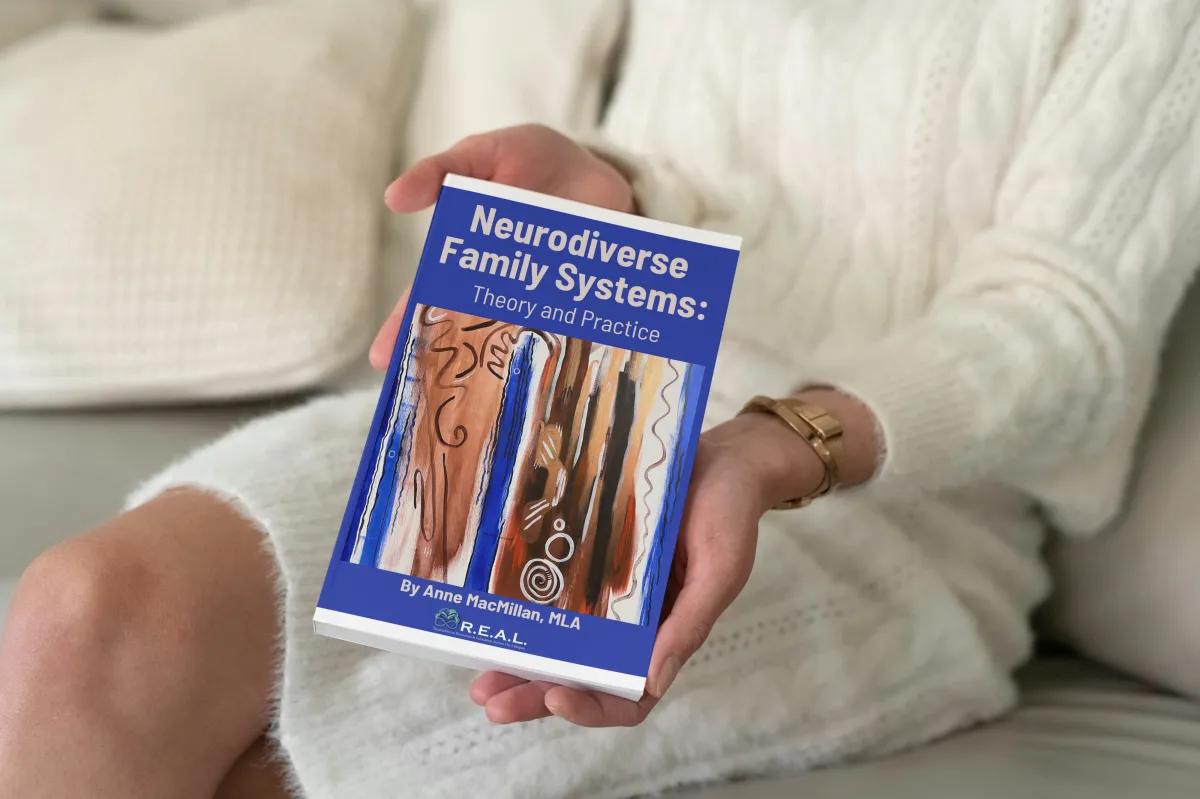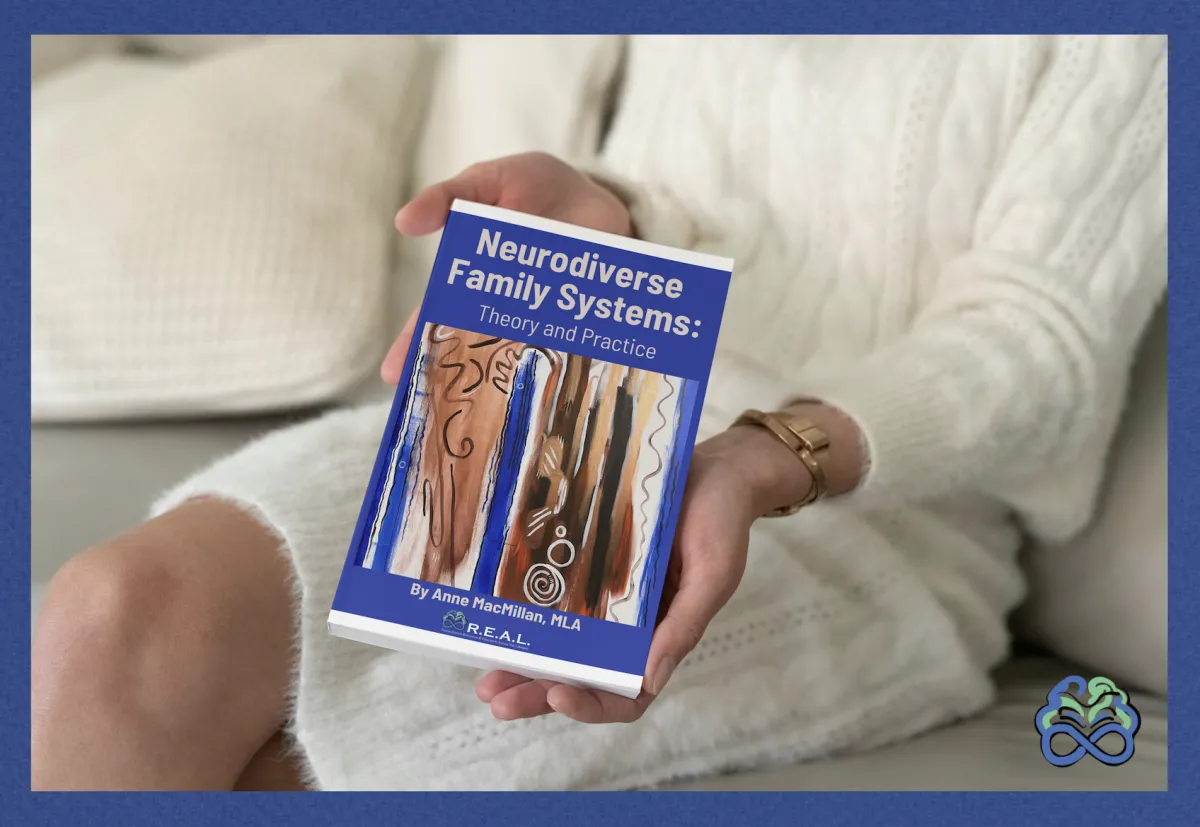

Reserve Your Copy of Anne MacMillan's Book Today
Neurodiverse Family Systems: Theory and Practice
About the Book:
Neurodiverse Family Systems: Theory and Practice offers a groundbreaking framework for understanding the unique relational dynamics that emerge within families shaped by neurological difference. Bridging developmental theory, lived neurodivergent experience, and applied clinical insight, this book challenges conventional models and introduces a nuanced approach to working with autism, ADHD, and high body empathy across generations.
Essential reading for professionals seeking to deepen their understanding of neurodiverse relational systems, it invites a rethinking of how empathy, trauma, and identity operate within the family landscape—and how meaningful change begins with neurological clarity. connection, stability, and emotional peace.


About Anne
I built my original Neurodiverse Family Systems Theory on my education, personal life experience, and the professional experience I gained in the private neurodiverse services practice I founded in 2017.
Today, my services extend to support other professionals who have come to the new realization that neurodiversity is at the heart of many of the relationship challenges their adult clients face. Professionals can use my practical 10-Step educational system, including quantitative assessments, integration practices, and support resources to help their clients comprehend their relationship challenges and find the happiness and peace they deserve.
I have a research-based master's in psychology from Harvard University and studied developmental psychology as an undergrad. I received the Director's Thesis Award at Harvard for my original research on Level 1 autism and intimate life partnerships — some of the first quantitative research on the subject in the world.
Altogether, I have over 50 years of personal life experience with neurodiverse family systems (I was born into a neurodiverse family), over 20 years of personal life experience with neurodiverse intimate life partnerships, and 8 years of professional experience working with individuals managing the challenges of neurodiverse family systems.
I self-identify as a high body empathetic neurodivergent and attention neurodivergent (ADHD). I am not autistic.

Anne MacMillan, MLA
Author of the R.E.A.L. 10-Step Neurodiverse Family Systems Approach, Speaker, Researcher, Consultant, Coach, and Educator

Reserve Your Copy Today:
Text or WhatsApp: (617) 489-2913
Email: anne@REALneurodiverse.com
Site:
REALneurodiverse.com
